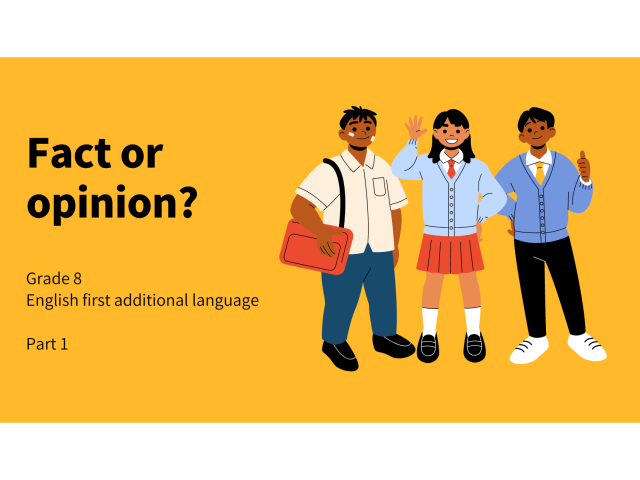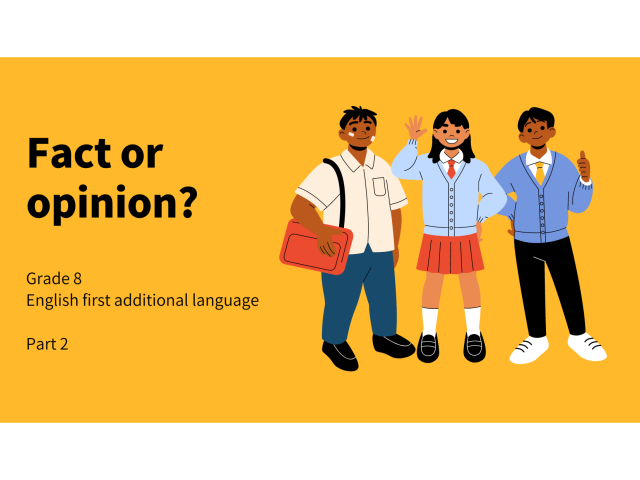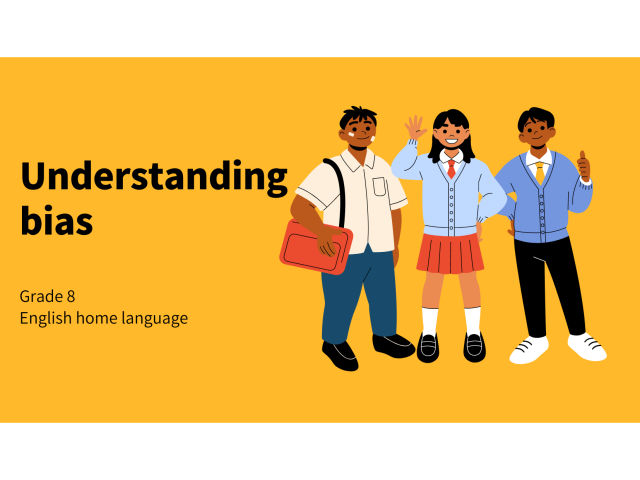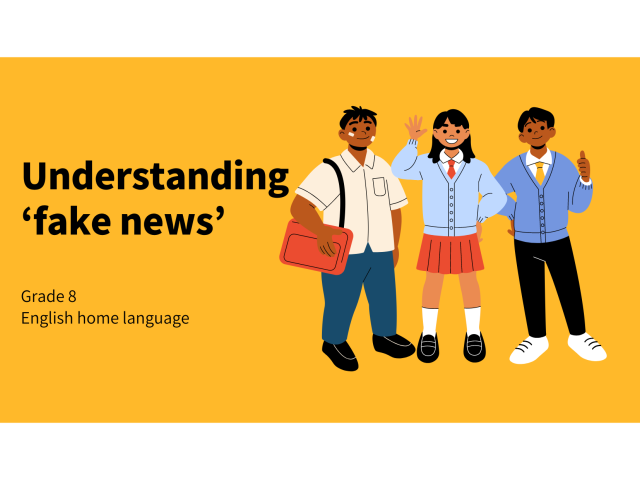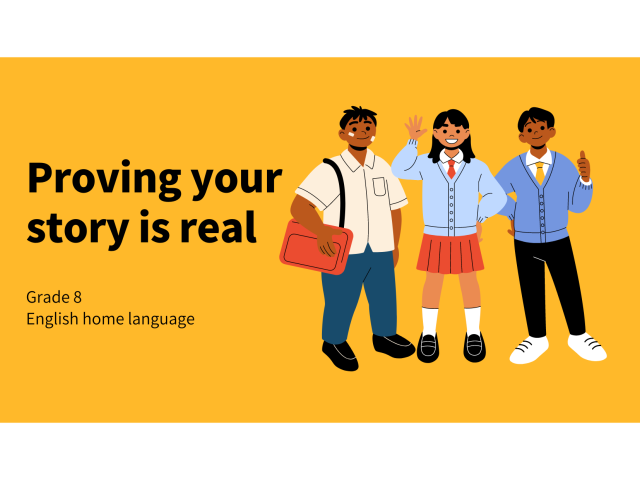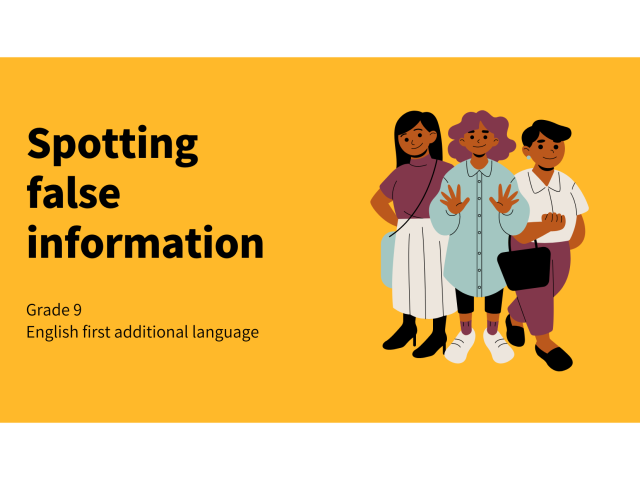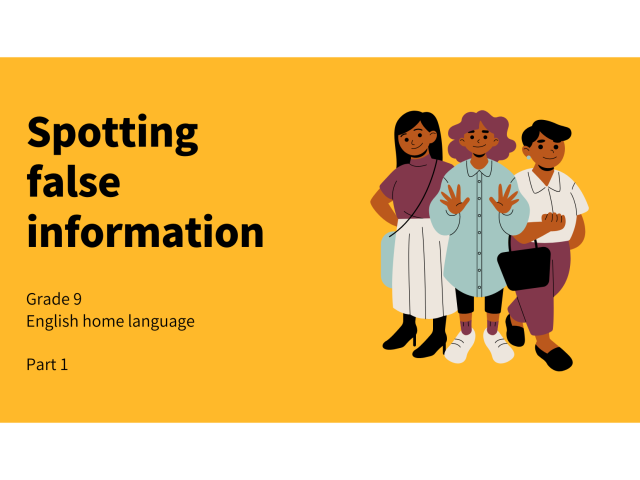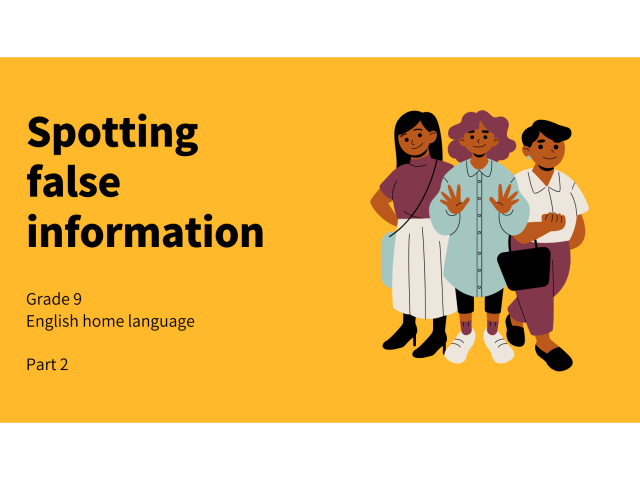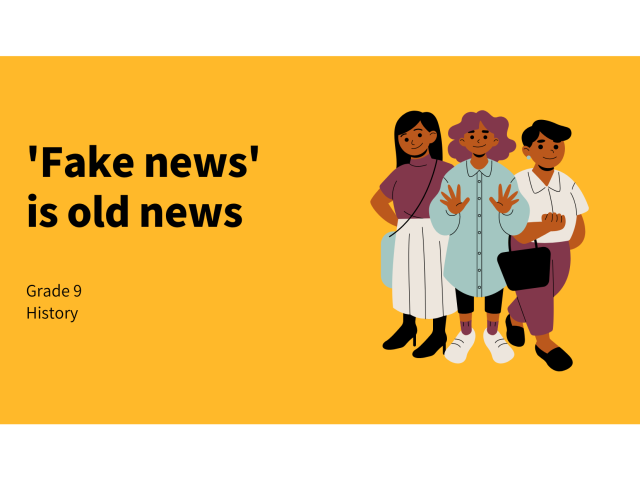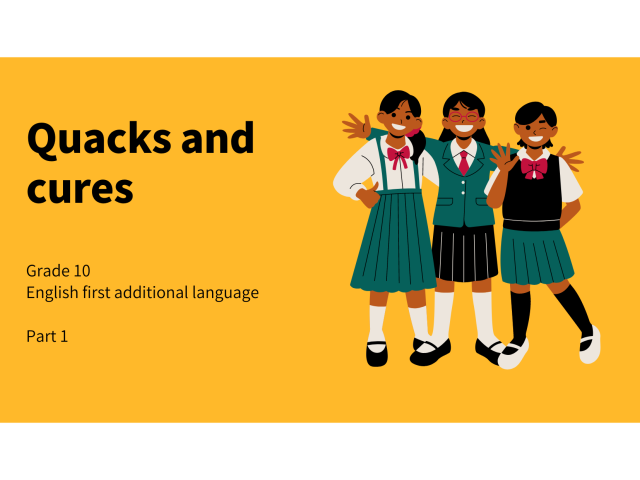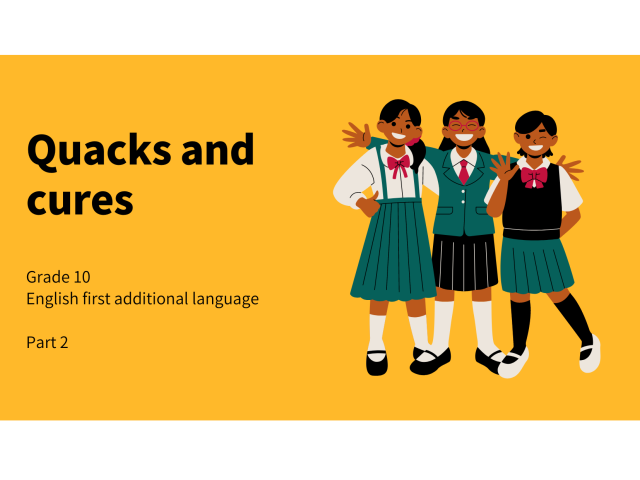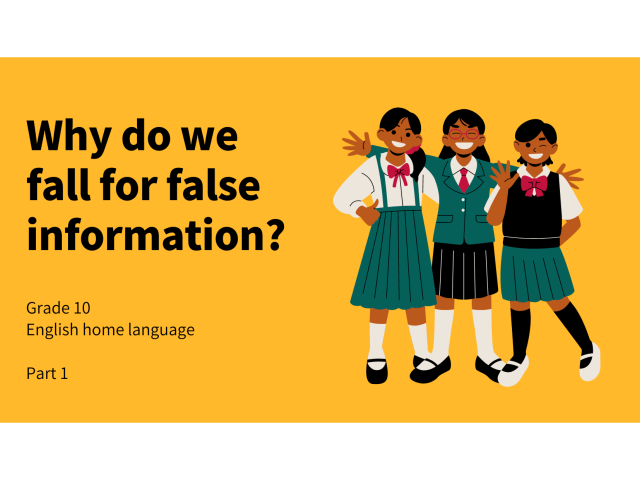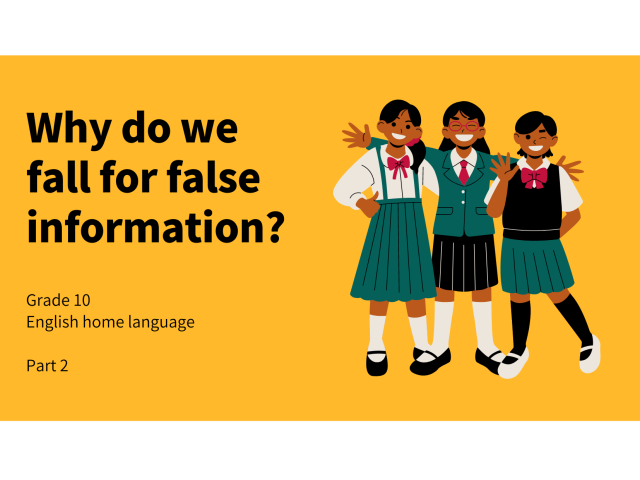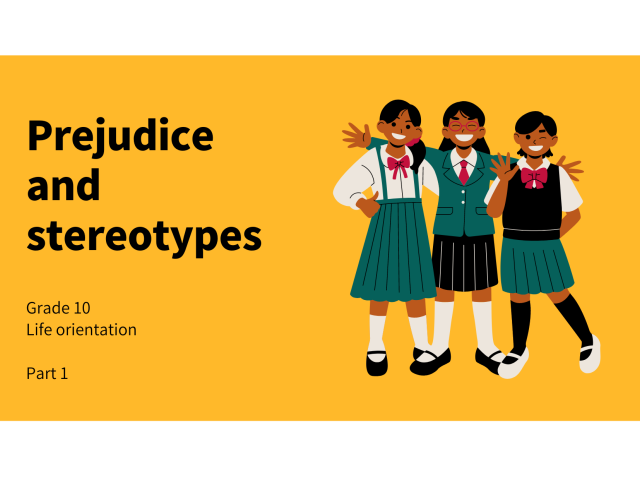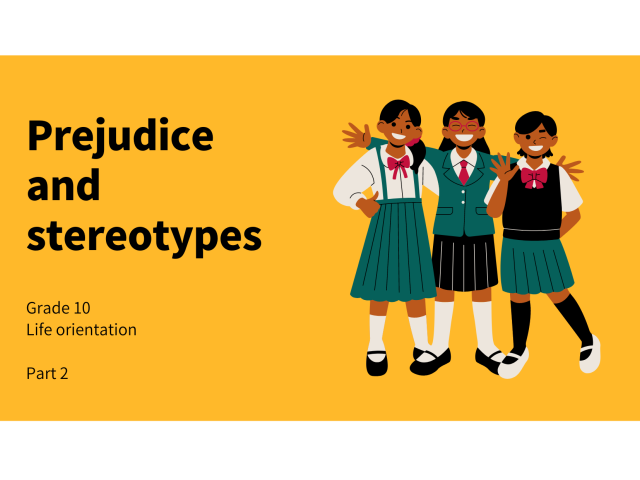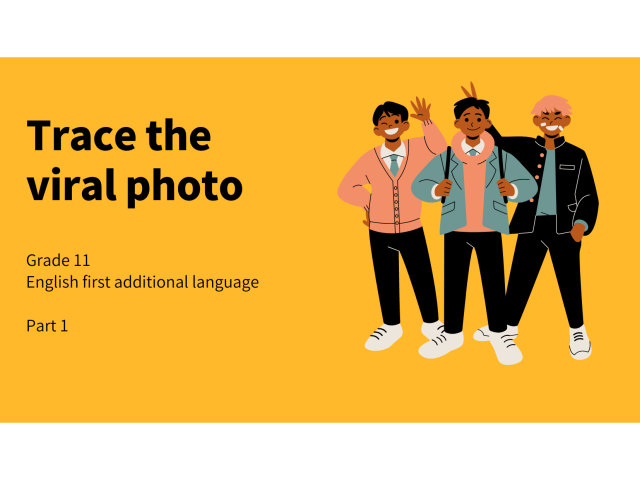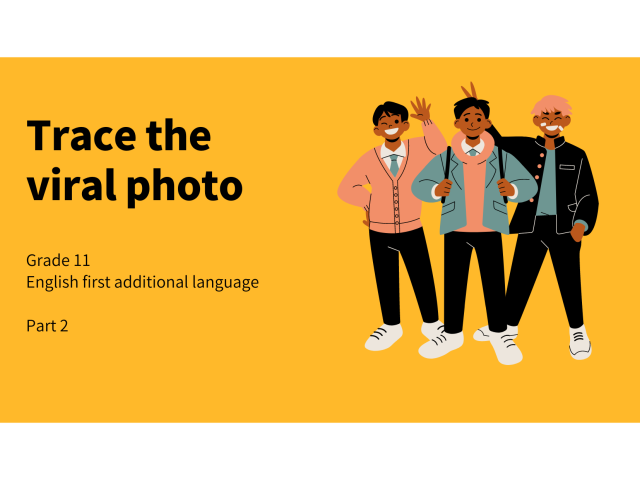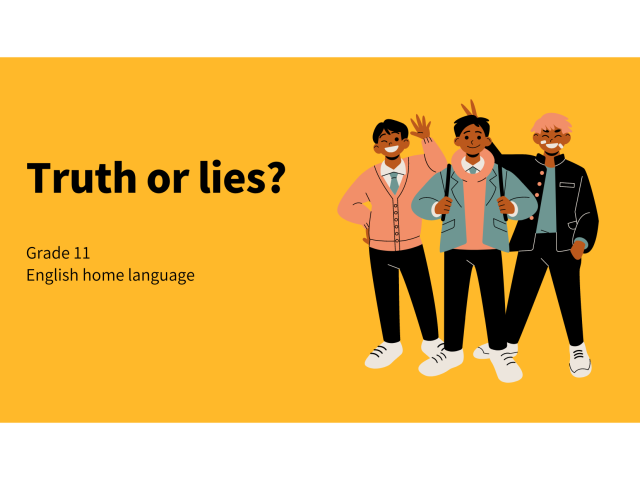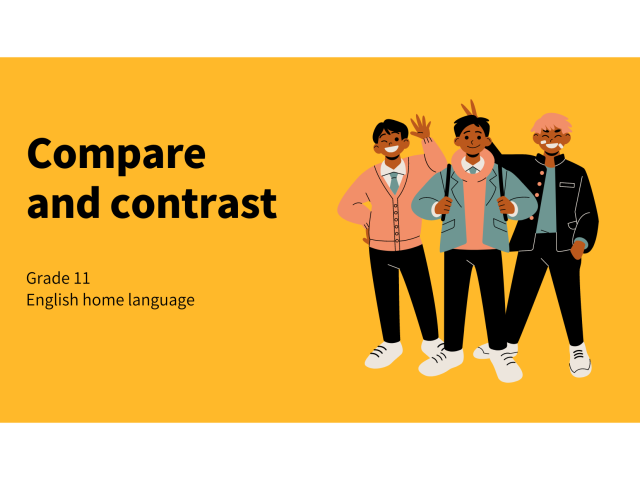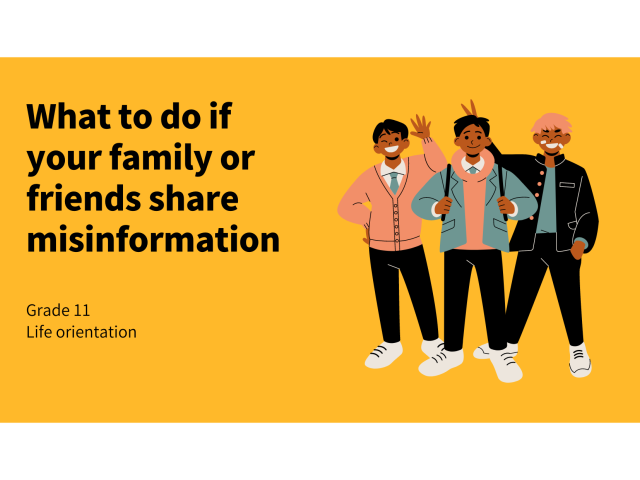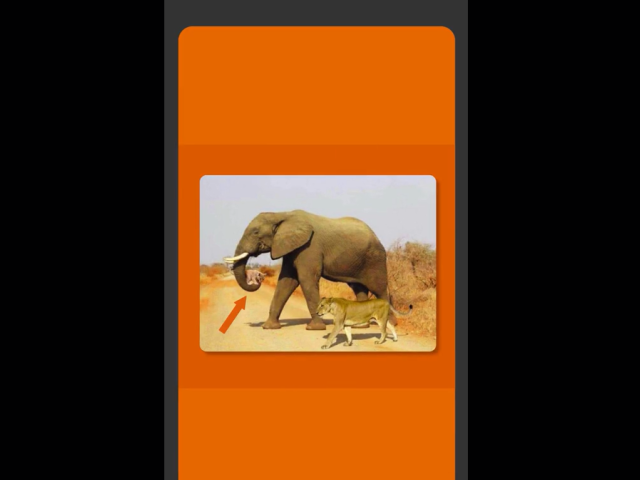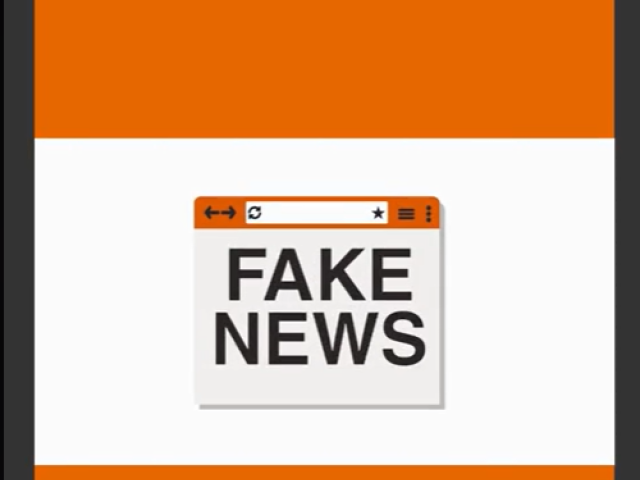With many students having access to the internet and mobile devices from a young age, it's important that they have the skills and knowledge to critically assess if information should be believed and shared. The resources in this knowledge hub are available for educators to use to teach students the necessary critical-thinking skills to sort fact from fiction, creating a young generation of responsible media consumers.
Please note that the lesson plans below were originally created for educators in South Africa with local students in mind. While educators from elsewhere are welcome to use these materials, minor aspects of them may differ from your context.
Lessons
We've created lessons for grades 8 to 11 on various fact-checking and media literacy topics across different themes. They are free to download and use, with the goal of helping your students distinguish fact from fiction in their day-to-day lives.
Grade 8
A selection of free-to-use lessons for grade 8 educators.
Grade 9
A selection of free-to-use lessons for grade 9 educators.
Grade 10
A selection of free-to-use lessons for grade 10 educators.
Grade 11
A selection of free-to-use lessons for grade 11 educators.
Tipsheets
Use these tipsheets as handouts in class or as easy reference tools for fact-checking different types of information.
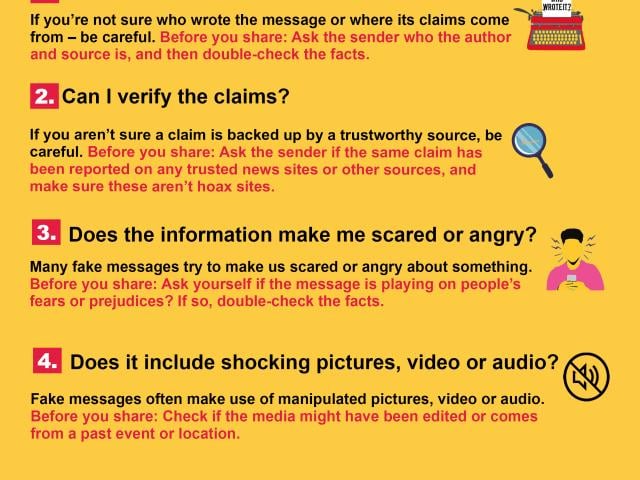
TIPSHEET #1: False info on WhatsApp
Just because it’s online doesn’t mean it’s true! Ask yourself (and others) these questions before forwarding a message.
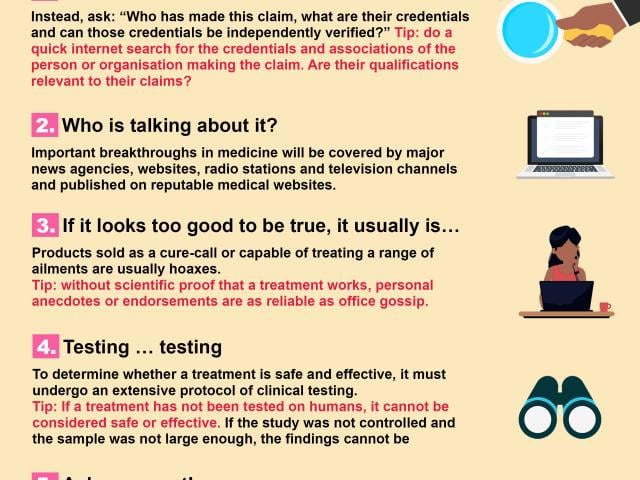
TIPSHEET #2: Fake health claims
Use this handy guide to help you sift out the real from the dodgy when it comes to your health.
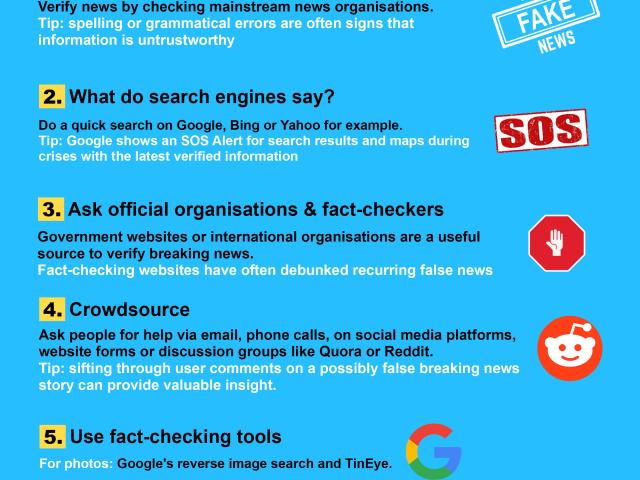
TIPSHEET #3: Verifying breaking news
How can you check if the information you receive is credible? Follow these simple steps to verify breaking news.
Media literacy research
Research on media literacy in Africa.
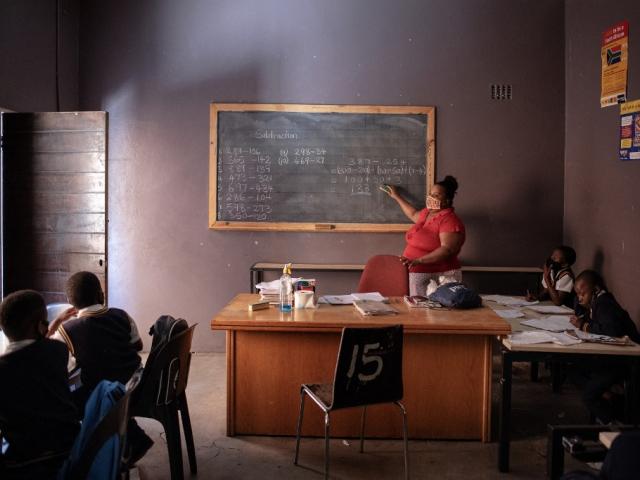
Getting fact-checkers' methods into the curriculum: the six Cs of misinformation literacy
Misinformation can harm health, life choices and even democracy, but the essential skills needed to identify it are rarely taught. With insights from a study he and five colleagues recently published, Peter Cunliffe-Jones argues for an expanded definition of media literacy.
Date published: June 2021

An assessment of media literacy and fact-checking training needs in South African schools and universities
Researchers: Prof Herman Wasserman and Dr Dani Madrid-Morales
Date published: March 2022
TikTok
A series of TikTok videos explaining fact-checking concepts in short and easy-to-follow steps.
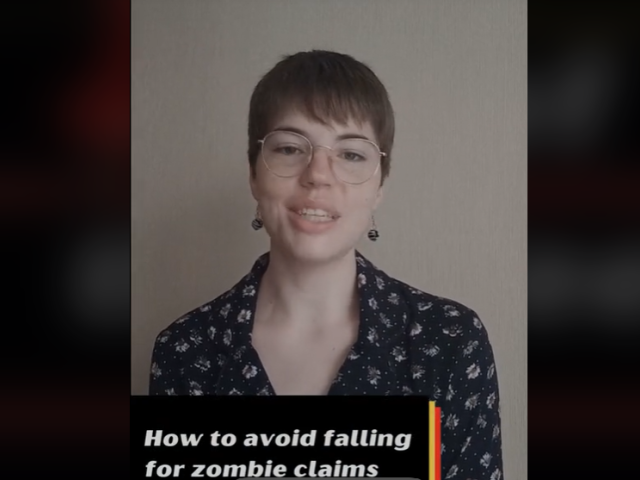
How to avoid falling for zombie claims
This video takes students through the steps of identifying so-called zombie claims.
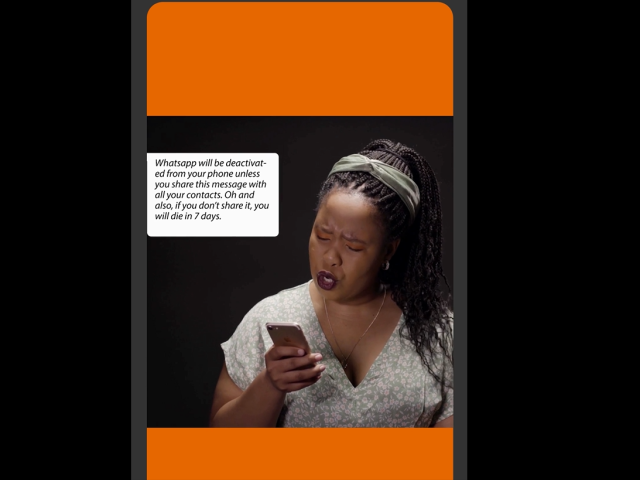
Before forwarding a WhatsApp
Here are Africa Check’s five questions you should ask yourself before forwarding a message on WhatsApp.
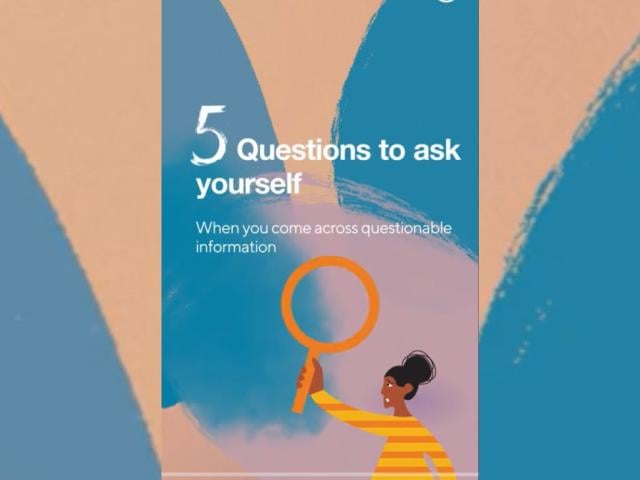
What to do when you come across questionable information
With the flood of information available to us at the click of a button, dodgy claims are never far behind. Here are 5 questions to ask yourself.
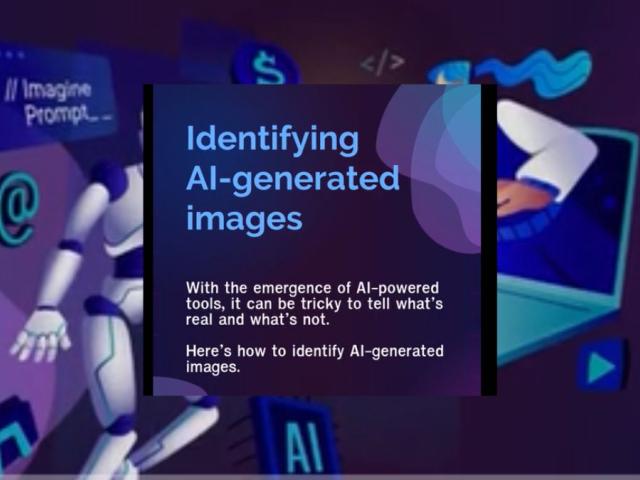
How to identify AI-generated images
It can be tricky to tell whether or not an image is real, especially with the emergence of advanced technology. Here's what to look out for.
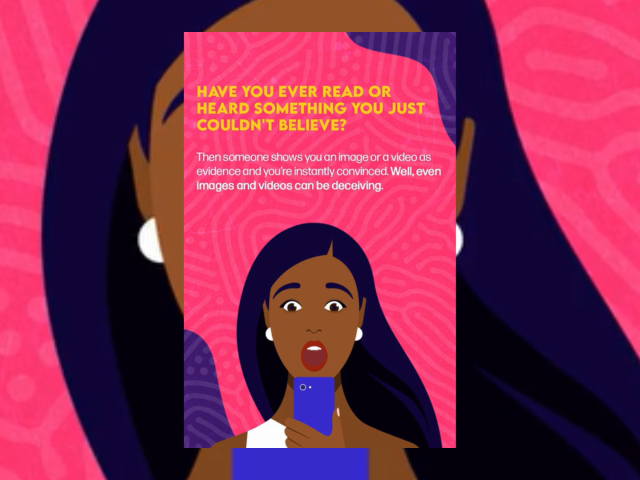
How can you tell if a photo is real?
You can use platforms like Google Reverse Image Search and TinEye to see where an image comes from, where else it’s been used and if modified versions of that image exist.
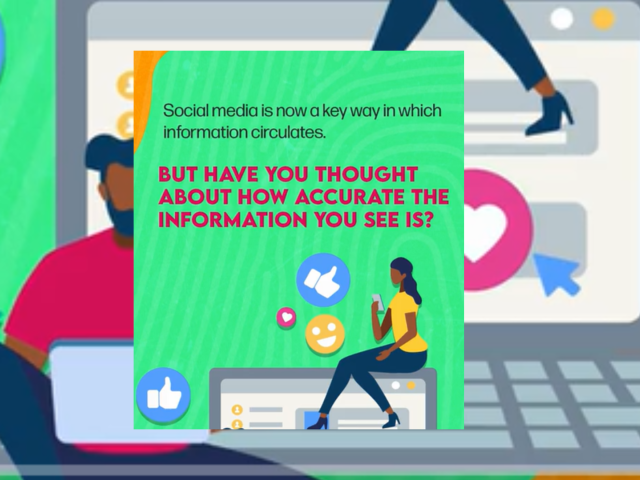
How to identify false information on social media
A lot of information circulates on social media. It’s important that you’re able to identify false information. Here are three tips to help you do just that.
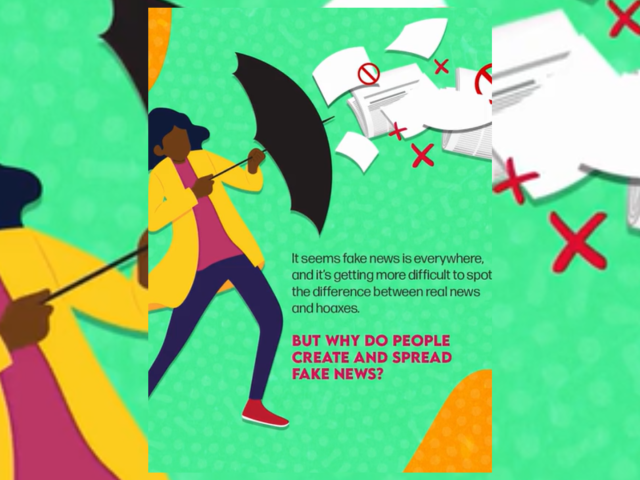
The difference between misinformation and disinformation
There are two forms of false information: misinformation and disinformation. Misinformation is when false information is spread unintentionally, while disinformation is when false information is spread with the intention to mislead.
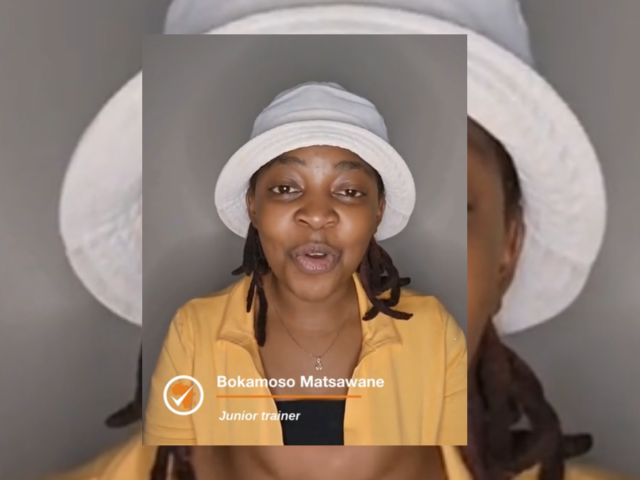
How to identify types of disinformation
At a click of a button, we can get access to a flood of information in a matter of seconds. We give a breakdown of five types of disinformation and how you can identify them.
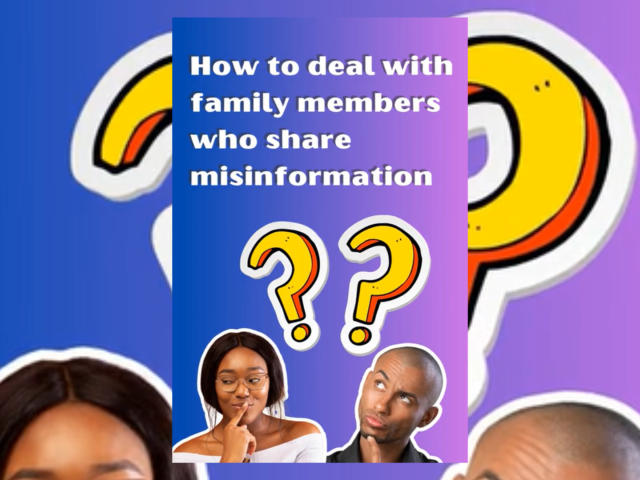
Dealing with family members who share misinformation
Dealing with family members who share misinformation can be challenging, and it is important that we approach this matter with care. Africa Check gives you five tips to help you pull it off.
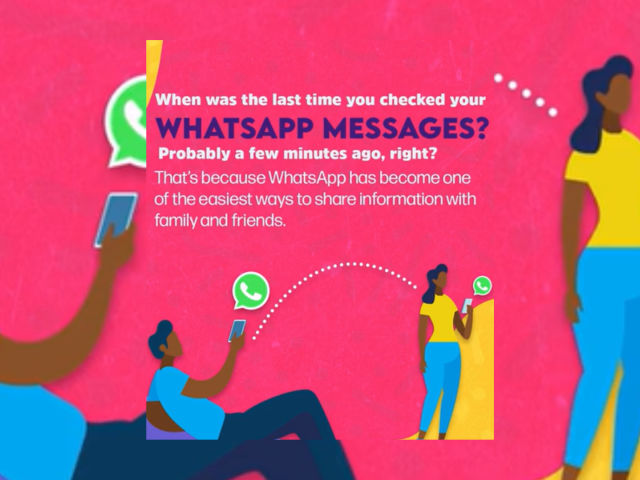
Verifying information before forwarding on WhatsApp
Information that does not provide a source is often not credible. If there is a source, check the author’s credibility. If the information is not reported by other credible news sites, it’s likely false.
How-to videos
Watch these videos with your students to help them learn how to identify false information and fact-check claims on their own.
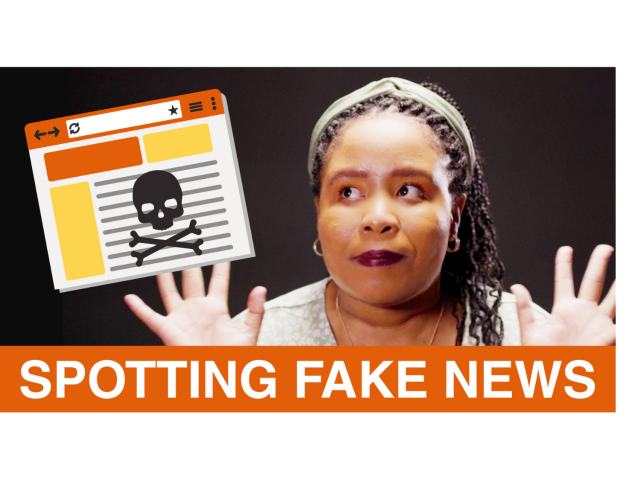
How to avoid falling for false news
False news can lead to poor health decisions, hardening of stereotypes, creating social divisions and damaging the public’s trust in the media. Plus, these stories get shared a lot and attract traffic to the dodgy website. Here are our four top tips to spotting a false news story.
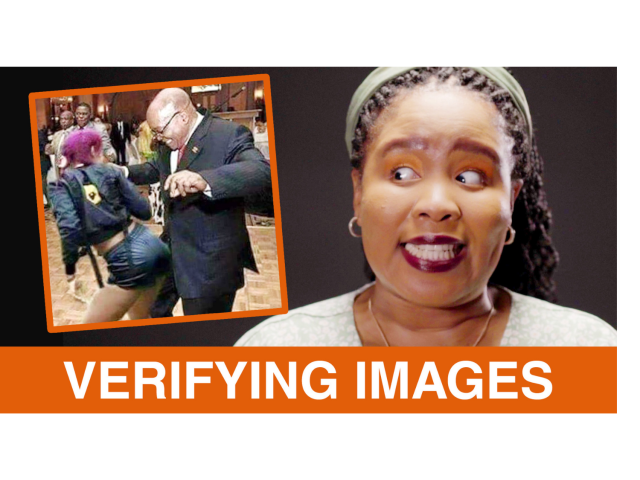
How to verify images and videos
They say “seeing is believing” but in the age of false news and false information, we need to be more and more careful about trusting our eyes. So how can you tell if a video or image is true or false? Here are a few simple steps to verifying videos or images.
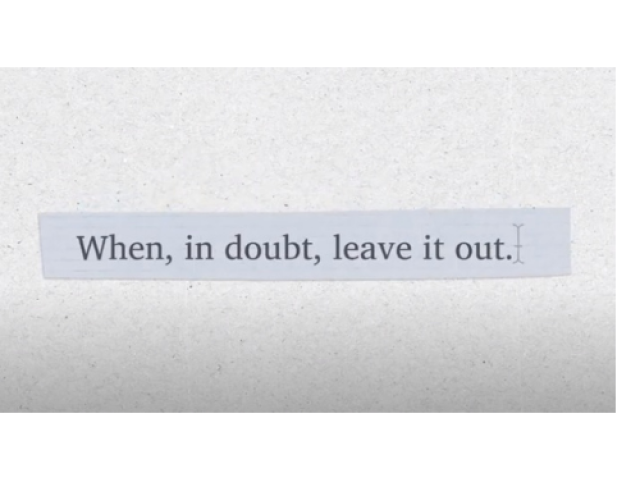
How false information spreads
Ever wonder how false information, often referred to as "fake news", spreads so easily and how you can play a role in stopping it? We cover false information, including mis- and disinformation, how it spreads as well as the role bias plays.
Additional resources
Additional resources that may be helpful to you and your students.

YALIChecks
Disinformation is false information deliberately spread by bad actors. When false information spreads and takes hold in our communities, the consequences can range from threatening our physical health, to curtailing the civil liberties of targeted groups, and even violence. Join YALIChecks today to stop disinformation and commit to only sharing factual information with others and helping to prevent the spread of harmful disinformation. Watch this page for resources to understand the difference between disinformation and misinformation, test your knowledge about disinformation tactics, and ways to educate others about the characteristics of disinformation.


